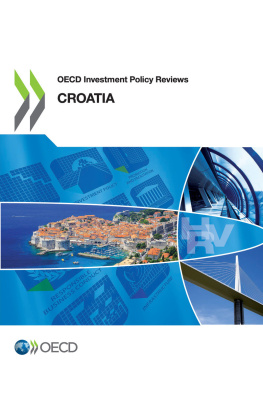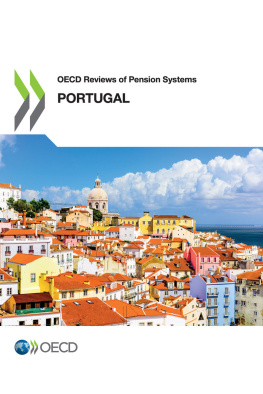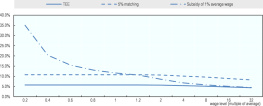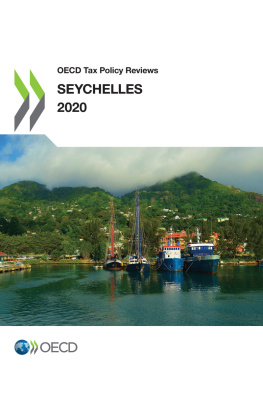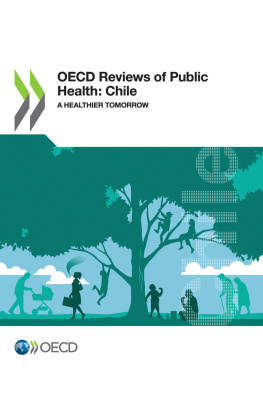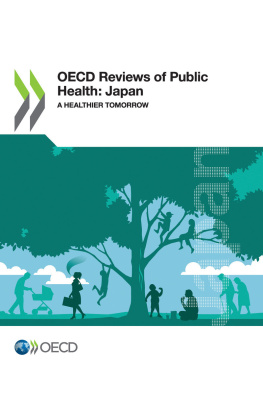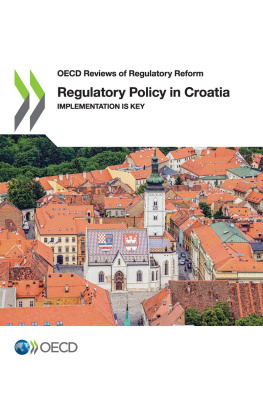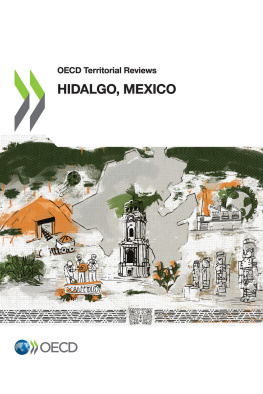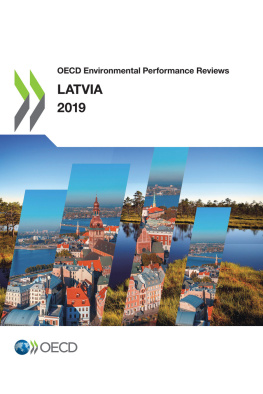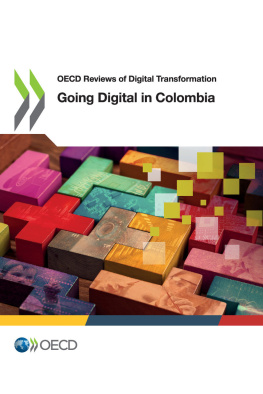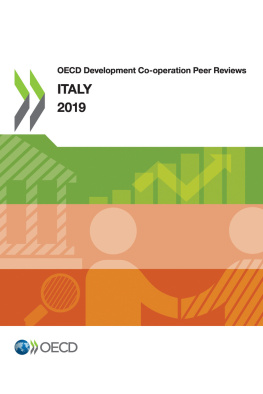OECD - OECD Investment Policy Reviews: Croatia 2019
Here you can read online OECD - OECD Investment Policy Reviews: Croatia 2019 full text of the book (entire story) in english for free. Download pdf and epub, get meaning, cover and reviews about this ebook. year: 2019, publisher: OECD Publishing, genre: Politics. Description of the work, (preface) as well as reviews are available. Best literature library LitArk.com created for fans of good reading and offers a wide selection of genres:
Romance novel
Science fiction
Adventure
Detective
Science
History
Home and family
Prose
Art
Politics
Computer
Non-fiction
Religion
Business
Children
Humor
Choose a favorite category and find really read worthwhile books. Enjoy immersion in the world of imagination, feel the emotions of the characters or learn something new for yourself, make an fascinating discovery.
OECD Investment Policy Reviews: Croatia 2019: summary, description and annotation
We offer to read an annotation, description, summary or preface (depends on what the author of the book "OECD Investment Policy Reviews: Croatia 2019" wrote himself). If you haven't found the necessary information about the book — write in the comments, we will try to find it.
OECD: author's other books
Who wrote OECD Investment Policy Reviews: Croatia 2019? Find out the surname, the name of the author of the book and a list of all author's works by series.
OECD Investment Policy Reviews: Croatia 2019 — read online for free the complete book (whole text) full work
Below is the text of the book, divided by pages. System saving the place of the last page read, allows you to conveniently read the book "OECD Investment Policy Reviews: Croatia 2019" online for free, without having to search again every time where you left off. Put a bookmark, and you can go to the page where you finished reading at any time.
Font size:
Interval:
Bookmark:
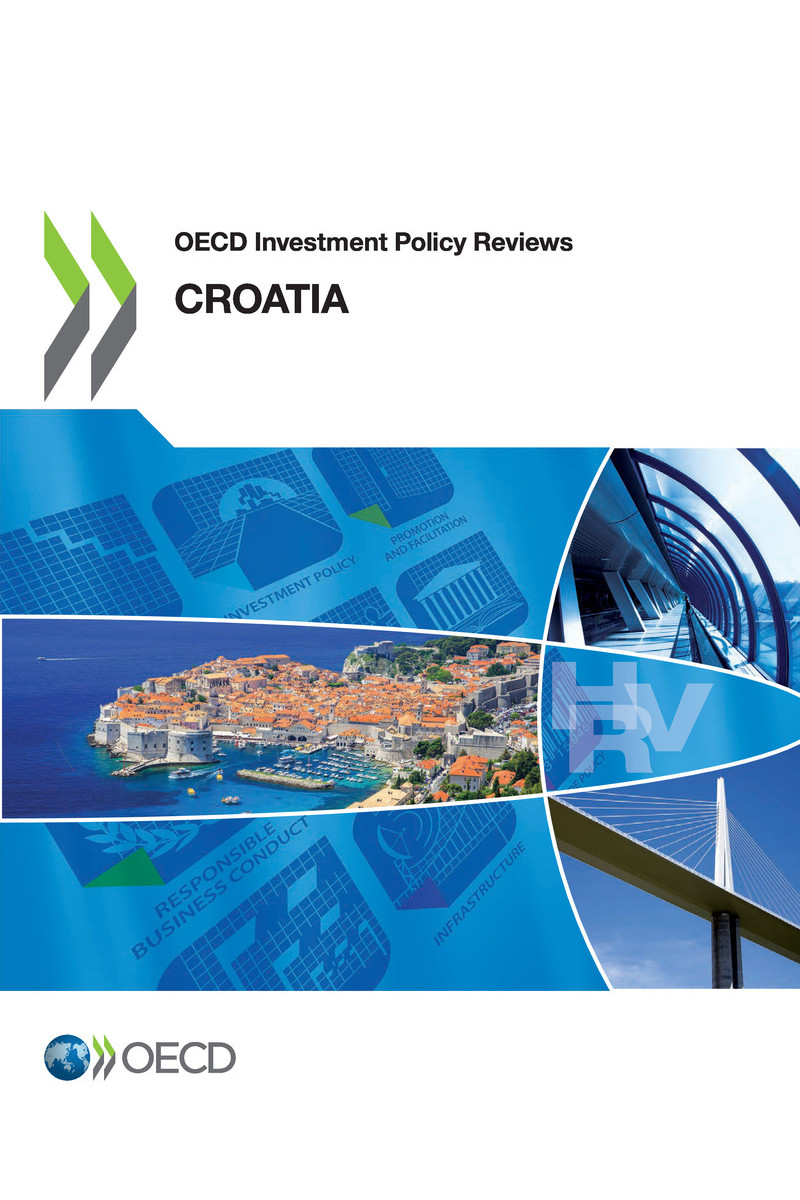
OECD (2019), OECD Investment Policy Reviews: Croatia 2019 , OECD Investment Policy Reviews, OECD Publishing, Paris, https://doi.org/10.1787/2bf079ba-en .
Croatia has recorded considerable economic and social progress since the start of the post-independence reforms in the late 1990s. GDP per capita increased by an average annual rate of 2.5% between 2000 and 2018 (in PPP, at constant 2011 international USD). Due to this strong economic growth and improvements in labour market conditions, the share of the population living below the poverty line (at USD 5.5/day PPP) has continued trending downwards to 4.6%, from 7.3% in 2013. In addition to its expanding tourist sector, Croatias strong performance has been supported by major policy reforms, including continuous efforts to open the economy to investment which have helped spur capital inflows.
This performance has been impressive but Croatia still faces challenges going forward. Growth has slowed down since the global financial and economic crisis (that in fact took a particularly heavy and prolonged toll on Croatia) and convergence in living standards with the rest of the European Union has stalled. Inequalities in income and wealth, both at functional and territorial levels, have increased. Against this background, more remains to be done to fulfil the target set by the umbrella strategy EU 2020 of Croatia having a GDP per capita equal to 68% of the EU average (it was 61% in 2017). The government recognises these challenges and as part of its commitment, is engaged in ambitious reforms to improve the business environment, attract foreign investors, and further reap the benefits of openness and globalisation.
Drawing on OECD investment instruments, in particular the OECD Declaration on International Investment and Multinational Enterprises , as well as the OECD Policy Framework for Investment, a policy tool to help governments mobilise private investment that supports steady economic growth and sustainable development, this OECD Investment Policy Review of Croatia looks at how improvement in the overall investment climate can promote competiveness, diversification, inclusive growth and sustainable development. It offers recommendations across a broad range of policy areas in order to make the most of investment as an engine to boost the economy and the well-being of its citizens. In particular, the government will need to increase domestic entrepreneurship, strengthen competitiveness, clarify its strategies for attracting investments that can support economic diversification, further promote responsible business conduct, and prove to investors that the institutional and regulatory system is transparent and accountable. The government is aware of these challenges and is addressing them.
This Review is the result of close co-operation between the Ministry of Foreign and European Affairs (MVEP) and the OECD. While the OECD brought its deep, inter-disciplinary expertise, MVEP drove the cross-agency process, involving the private sector and civil society and providing critical inputs to the Review . The Review precedes the first Croatian semester of EU Presidency: we are confident it will prove of guidance to all stakeholders interested in peace, prosperity and inclusive growth.
We would like to express our gratitude to the European Union for funding the Review . We hope this report will contribute to creating a favourable investment environment in Croatia.

Jasmin Devli
Director, Sector for Economic Relations,
Ministry of Foreign and European Affairs, Republic of Croatia

Greg Medcraft
Director, OECD Directorate for Financial and Enterprise Affairs
The Investment Policy Review of Croatia assesses the investment climate in Croatia and discusses the challenges and opportunities faced by the government of Croatia in its reform efforts. Capitalising on the OECD Policy Framework for Investment , the Review takes a broad approach to investment climate challenges facing Croatia, with chapters on foreign investment trends and performance, competiveness, foreign investment regulations, the legal and institutional framework for investment protection, investment promotion and facilitation, regulatory practices, and policies to promote and enable responsible business conduct.
The Investment Policy Review of Croatia was undertaken under the aegis of the OECD Investment Committee. The Ministry of Foreign and European Affairs led the process within the Croatian government and established and convened an ad hoc inter-ministerial task force. This publication draws on the report supporting the assessment by the Investment Committee of Croatias ability to comply with the principles of openness, transparency and non-discrimination and responsible business conduct practices and its policy convergence with the OECD Declaration on International Investment and Multinational Enterprises , with the aim to adhere to this instrument. The Investment Committee meeting took place in March 2019 at the OECD headquarters in Paris in the presence of a delegation from Croatia led by the Ministry of Foreign and European Affairs.
Font size:
Interval:
Bookmark:
Similar books «OECD Investment Policy Reviews: Croatia 2019»
Look at similar books to OECD Investment Policy Reviews: Croatia 2019. We have selected literature similar in name and meaning in the hope of providing readers with more options to find new, interesting, not yet read works.
Discussion, reviews of the book OECD Investment Policy Reviews: Croatia 2019 and just readers' own opinions. Leave your comments, write what you think about the work, its meaning or the main characters. Specify what exactly you liked and what you didn't like, and why you think so.

